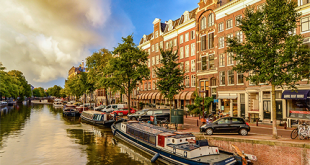Pursuing a PhD in the Netherlands is an attractive prospect for many international students. The Netherlands is known for its progressive higher education system, with top universities, research institutes and industry partners. With a diverse range of research opportunities, excellent facilities and an open and welcoming environment, international students can benefit from a unique and rewarding experience.
The Netherlands also offers financial support for PhD students, making it an attractive destination for those looking to further their studies. With an excellent quality of life and a vibrant cultural atmosphere, the Netherlands is the perfect place to take the next step in your academic journey.
Table of Contents
Is it worth doing a PhD in the Netherlands?
In the field of education, the Netherlands has an impressive reputation. And numerous benefits make it the ultimate destination for students seeking an international PhD experience.
Some of the reasons to study in Holland include:
- Outstanding graduate schools
- Wide range of research programs
- Excellent research facilities and world-class universities with 10 of the top Dutch universities being in the top 200 international ranking.
- Most PhD candidates get a paid contract as university employees.
- Top ranked worldwide when it comes to the number of publication per researcher (2nd) and the impact of research publication (4th)
And there is the accreditation. Usually, it’s up to the university to grant the degree and ensure the quality and content of each student’s doctoral training. However, when it comes to the quality of the PhD process, the Netherlands and Flemish Accreditation Organization (NVAO) is in charge of ensuring you earn a worthy degree.
Structure of a PhD in the Netherlands
The Netherlands being part of the European Higher Education Area, a PhD program in the country accounts for a third-cycle qualification. The doctoral research then focuses on a specific topic and ends up with a thesis that presents the student’s results and conclusions.
Moreover, like in any research work, students will work closely with a supervisor to oversee their doctorate and approve their thesis for submission. Supervision involves progress check, review points among other things. Students also can have a co-supervisor if needed.
Is a PhD in the Netherlands paid?
The answer is yes. Most doctorate candidates in the Netherlands have the status of professional researchers. In other words, they get a salary during their doctorate and in return they’ll have various tasks as researchers and to contribute to the university’s academic work and operation, such as teaching, and some administrative responsibilities.
Students can find most PhD positions listed on job boards, on universities’ notice boards, or in scientific journals.
How long does it take to do a PhD in the Netherlands?
Doing a PhD in the Netherlands requires you spend a minimum of 4 years to conduct research and write your dissertation. This is due to the employee status of the doctorate candidate, which require them to ensure other bonus tasks along with their research work.
In the case the doctoral candidate is not associated to a university, like for an external candidate, it will take longer to complete the PhD degree.
Dutch PhD defense ceremony
To defend your PhD thesis the Dutch way, there is a protocol you need to follow to the letter. As a matter of fact, the PhD defense in the Netherlands is not an examination but rather a ceremony. It serves the same purpose as a viva voce examination but with a more formal process in front of a traditionally dressed committee!
During this unique ceremony, the student also wears a full academic dress and uses formal titles. Moreover, the protocol stipulates what happens at each step, what the student should say at the beginning and how they should address their opponents. An officer of the university, a beadle, opens and closes the ceremony using a ceremonial staff.
The doctoral committee consists of at least 3 academics. They are there to assess the student’s thesis and determine if it’s worthy of a doctorate. It may include a professor – a ‘most learned opponent’, or a post-doctorate academic, a ‘learned opponent’. Other invited individuals can also ask questions to the student.
Another distinctive traits of the thesis defense in the Netherlands is the fact that students can have 2 supporters to accompany them. They served in the old days as “bodyguards” in case things got heated. Nowadays, they are more of a moral support and a practical assistance.
Lastly, PhD candidates need to publish their thesis as a book before the defense ceremony takes place.
How to apply for a PhD position in the Netherlands?
PhD’s candidates in the Netherlands are part of the academic staff of a research school or a graduate school. Research schools consists of partnerships between several research universities and institutes. Graduate schools on the other hands are organizations within universities. However, only research universities and in some cases research institutes can award PhD degrees.
Application can be done 2 ways: either you apply for an advertised PhD program or you submit your own research proposal. If you see a PhD position that interests you, contact the university directly to inquire about the application procedure.
In the case you have a specific proposal but can’t find a vacancy that matches your intended project, the process is to pitch your idea to universities or research groups who work in the relevant field and able to provide the funding you need.
Admission requirements
The criteria for admission to doctoral positions are rigorous. And prospective candidates must have a strong background in theory and practices in their field. They also must have a master’s degree in a relevant subject area. International students must ensure their master is recognized in the Netherlands.
To check a degree equivalency, you can go either on the website of the Dutch Organization for Internationalization in Education (Nuffic) or check with your choice university. Furthermore, since most international candidates choose to write their thesis in English, they need also need to provide a proof of a good command of the English language. (TOEFL or IELTS scores in most cases).
Additional entry requirements vary depending on the research subject and the university.
Check also our guide on how to apply to universities in the Netherlands.
How much does a PhD cost in Netherlands?
Since PhD students are university employees who receive a salary, many Dutch doctoral programs apply no tuition fees. At least not in the literal sense. However, some universities may charge statutory fees for the enrollment, supervision, examination, administration or access to the research facilities of the institution.
Each university is free to decide how much fees they charge. Usually, this varies depending on the institution, the discipline of study, the cost of lab equipment etc.
Netherlands PhD funding
In the Netherlands, there are 3 ways to fund your doctoral studies:
- Through an employment contract with your research university or institute
- With a fellowship or grant
- With a sponsorship from an employer
The first option is the most common. Moreover, around 17% of PhD candidates get a funding from a fellowship or grant from abroad. These organizations offering grants can be found on the website of Euraxess. The last option is to study for your PhD part-time while working. In this case, your employer provides the necessary funding for your doctorate.
Read also our guide on the scholarships in the Netherlands.
Netherlands PhD visa
EU/EEA/Swiss nationals do not require any visa for a PhD study in Holland. Non-EU/EEA citizens on the other hand need to arrange for a long-stay entry visa. Usually, your host university should offer you assistance for your application. If this is not the case, don’t hesitate to get in touch with the university’s international office or HR department. You’ll be able to collect your entry visa at a Dutch embassy or consulate in your home country.
Moreover, they also need to apply for a residence permit for study purpose from the Dutch Immigration and Naturalization Service (IND). And lastly, upon your arrival in the Netherlands, you absolutely need to register with the local council of residence. This serves as a registration in the Personal Records Database (BRP) in order to get a Citizen Service Number (BSN).
Get more details in our article on the student visa in the Netherlands.




 Aljawaz Your guide to study abroad
Aljawaz Your guide to study abroad














